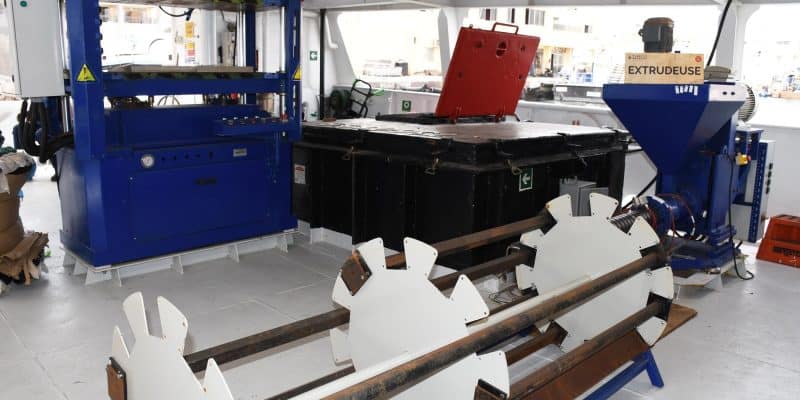While 11 million tonnes of plastic are dumped into aquatic ecosystems every year according to the United Nations Environment Programme (UNEP), Plastic Odyssey is continuing its world tour against waste pollution off the coast of Senegal, particularly in the port of Dakar. For a month, the crew of the French boat will collect non-biodegradable waste while raising awareness among local residents about the protection of marine biodiversity.
After a five-month expedition in North Africa, Plastic Odyssey has chosen Senegal to begin its West African journey against plastic waste pollution. The non-governmental organisation (NGO) based in Marseille, France, will carry out several eco-responsible activities until March 2023, in particular the collection of waste around the Dakar harbour pier in order to limit the destruction of the Senegalese capital’s marine ecosystems.
As in Egypt, Tunisia and Morocco, where Plastic Odyssey has made several stopovers since October 2022, the aim will also be to raise awareness among some 700 schoolchildren of the need to recycle plastic packaging into useful objects such as paving stones or piping materials. The maritime sector will also be trained to “build low-tech recycling machines on board“. This will contribute to the development of the circular economy through the creation of local jobs. The initiative is supported by Alioune Ndoye, Senegal’s Minister for the Environment and Sustainable Development.
“Turning plastic waste into resources will not be enough. In order to curb marine pollution in the long term, Plastic Odyssey is working on several awareness-raising programmes, including Build the Future, which provides access to concrete solutions for the populations most affected by the phenomenon,” says the NGO headed by Maïté Abos.
Read also-AFRICA: The Flipflopi boat raises awareness about plastic pollution in Lake Victoria
Before ending its world tour in South America and Southeast Asia by 2025, Plastic Odyssey will stop in Guinea and Cape Verde. In these West African countries, a dozen entrepreneurs will take part in an onboard incubation programme called the “Onboard Laboratory” to explore the alternatives needed for a plastic-free world. This is because aquatic biodiversity (fish and amphibious plants) is increasingly polluted by bottles and other plastic packaging from economic activities around beaches and waterways.
Benoit-Ivan Wansi






